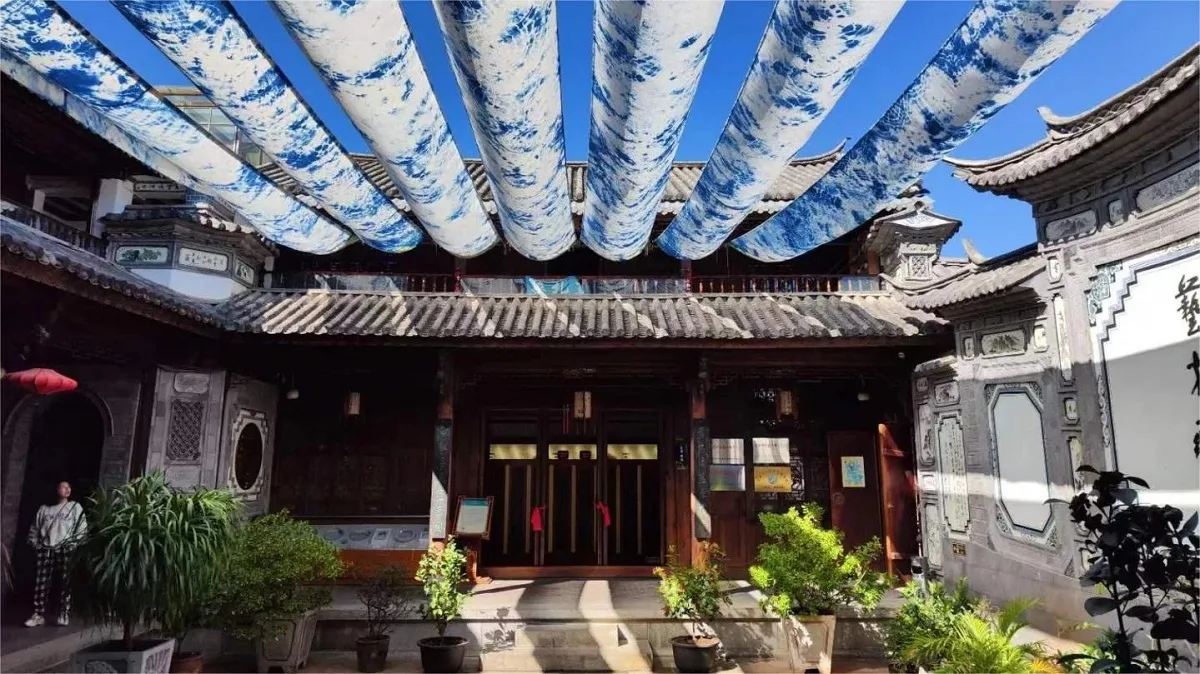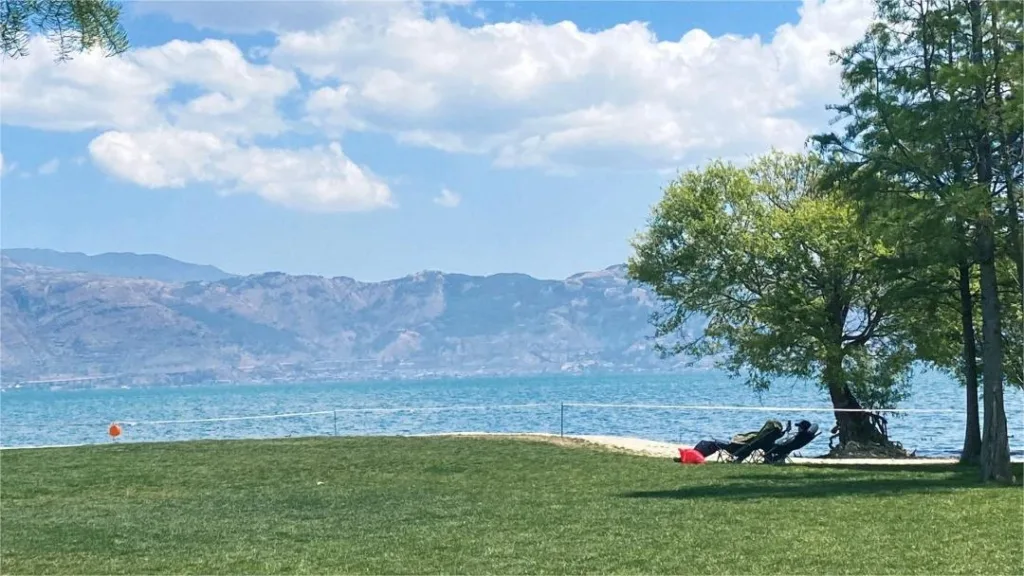Nestled amidst the picturesque landscapes of Dali, Zhoucheng Village (周城村) stands as a testament to the rich cultural tapestry of the Bai ethnic community. It holds the distinction of being the largest natural village inhabited by the Bai people in China, with over 2,400 households and a population consistently exceeding 10,000, where 99% of the residents proudly identify with the Bai ethnicity.
At the heart of Zhoucheng’s allure lies its vibrant cultural heritage, embodied by its traditional craftsmanship, with tie-dyeing, or “扎染 (za ran)” in Chinese, reigning as the village’s signature art form. This ancient technique involves intricately dyeing fabrics to create mesmerizing patterns, a skill honed and passed down through generations. Visitors are captivated by the kaleidoscope of colors adorning the streets, a testament to the artistic prowess of the local artisans.
hroughout the year, Zhoucheng Village comes alive with a plethora of ethnic festivals, each imbued with its own unique charm. Among these, the “March Street Festival” stands out as a highlight. During this vibrant celebration, the village pulsates with energy as locals and visitors alike come together to revel in traditional Bai music, dance, and cuisine.
Table of Contents
- Basic Information
- Location and Transportation
- Highlights of Zhoucheng Village
- Attractions near Zhoucheng Village
Basic Information
| Estimated Length of Tour | 1 – 2 hours |
| Ticket Price | Free |
| Opening Hours | 24 hours a day throughout the year |
| Telephone Number | 0086-0872-2316785 |
Location and Transportation
Zhoucheng Village is situated in the northern part of Dali City, Yunnan Province, China. It is bordered by the picturesque Yunnong Peak of Cangshan Mountain to the west and overlooks the tranquil waters of Erhai Lake at the Taoyuan Wharf to the east. Located approximately 25 kilometers south of the ancient city of Dali, it is also adjacent to the renowned Butterfly Spring Scenic Area to the north. To reach Zhoucheng Village, there are two convenient options:
From Xiaguan Passenger Transport North Station: You can take Bus No. 8, 9, or 23 to reach the Xiaguan Passenger Transport North Station. From there, catch a minibus heading to Heqing (鹤庆) or Eryuan (洱源). Alight at Zhoucheng Village when the minibus passes through.
From the West Gate of Dali Ancient City: Walk out from the West Gate of Dali Ancient City, where you’ll find many minibusses bound for Zhoucheng Village. The fare for this journey is approximately 3 yuan.
Highlights of Zhoucheng Village
Ethnic Architecture

Stepping into Zhoucheng Village is akin to stepping back in time, as its architecture reflects the rich cultural heritage of the Bai people. Traditional Bai residences dot the landscape, characterized by their meticulous attention to detail in architectural embellishments such as “zhaobi” (decorative screens), intricate floral motifs adorning doors and windows, ornate gateways, and elaborately carved eaves. The “zhaobi” serves as the focal point of Bai dwellings, typically standing before the central courtyard flanked by two wings, enclosed by walls adorned with lime plaster and decorative motifs, symbolizing prosperity and good fortune.
Tie-Dyeing Craft

One cannot explore Zhoucheng without immersing oneself in its famed tie-dyeing craft. Numerous shops line the streets, offering an array of tie-dyed products ranging from small souvenirs to larger textiles. Visitors are often welcomed into local homes by friendly residents eager to showcase their tie-dyeing skills, although prices may not differ significantly from those found in shops. From vibrant scarves to intricately patterned garments, the possibilities are endless, making tie-dyed textiles a popular choice for souvenirs and gifts.
For photography enthusiasts, capturing the scene of tie-dyed fabrics drying in the sun is a highlight of any visit to Zhoucheng Village. Typically, this process takes place in the morning until midday, with locals suspending lengths of fabric from wooden frames erected within the courtyards of ancient homes. The sight of colorful textiles billowing gently in the breeze against the backdrop of historic architecture creates a picturesque scene reminiscent of a bygone era.





